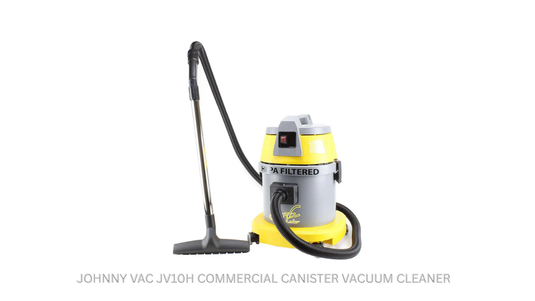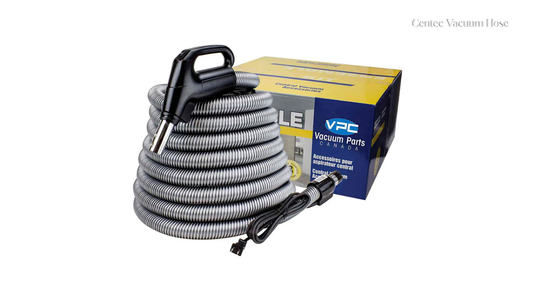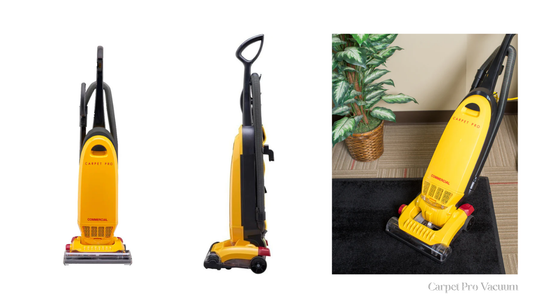How Much PSI Do You Need in an Electric Power Washer?
When shopping for an electric power washer, one of the most common questions homeowners ask is: “How much PSI do I need?”
PSI, short for pounds per square inch, measures the water pressure a power washer delivers. The higher the PSI, the stronger the spray. But more pressure isn’t always better—choosing the right PSI depends on what you’re cleaning. Too little pressure won’t get the job done, while too much could damage delicate surfaces like wood, paint, or siding.
In this article, we’ll break down what PSI means, the differences between PSI and GPM, recommended PSI ranges for different cleaning tasks, and how to choose the best electric power washer for your needs.
Understanding PSI in Power Washers
PSI (pounds per square inch) is the force at which water is delivered from the power washer. Think of it as the muscle behind the cleaning. A higher PSI means the water jet hits the surface with more intensity, making it easier to remove stuck-on dirt, grime, or stains.
But PSI alone doesn’t determine cleaning power. You also need to consider GPM (gallons per minute), which measures water flow. Together, PSI and GPM determine a power washer’s cleaning units (CU)—a useful way to compare models.
-
Cleaning Units (CU) = PSI × GPM
-
Example: A 2000 PSI washer with 1.5 GPM = 3,000 CU.
So while PSI tells you about pressure, GPM tells you how much water is used to rinse away the loosened dirt. The right balance of PSI and GPM is what makes cleaning efficient.
Common PSI Ranges in Electric Power Washers
Electric power washers typically fall in the 1,300 to 3,000 PSI range, which makes them ideal for residential use. Here’s what the numbers mean:
-
1,300 – 1,800 PSI
-
Light-duty cleaning
-
Suitable for washing cars, outdoor furniture, bikes, and windows
-
1,800 – 2,500 PSI
-
Medium-duty cleaning
-
Great for patios, decks, fences, and siding
-
2,500 – 3,000 PSI
-
Heavy-duty residential cleaning
-
Effective on driveways, sidewalks, brick, and stubborn stains
Most homeowners will find 1,800 to 2,500 PSI is more than enough for everyday cleaning. Higher PSI levels, while available, are usually overkill for most household tasks and can even risk damaging softer surfaces.
How Much PSI Do You Need?
The “right” PSI depends on what you’ll be cleaning most often. Let’s look at some common cleaning tasks and their recommended PSI levels:
1. Washing Cars & Vehicles
-
Recommended PSI: 1,200–1,900 PSI
-
Why: Too much pressure can strip paint or damage trim. A lower PSI with a wide nozzle is safest.
2. Cleaning Outdoor Furniture
-
Recommended PSI: 1,200–1,500 PSI
-
Why: Light pressure is enough to remove dirt and pollen without harming plastic, wood, or fabric surfaces.
3. Decks & Fences
-
Recommended PSI: 1,500–2,300 PSI
-
Why: Soft woods like cedar need lower PSI, while harder woods can handle more. Always test a small area first.
4. House Siding
-
Recommended PSI: 1,800–2,500 PSI
-
Why: This range works well for vinyl, brick, or stucco. Be careful not to spray under siding edges.
5. Driveways & Concrete
-
Recommended PSI: 2,500–3,000 PSI
-
Why: Concrete requires higher pressure to lift oil stains, mildew, and ground-in dirt.
6. Windows & Glass
-
Recommended PSI: Under 1,500 PSI
-
Why: High pressure can crack or break glass. Always use a wide-angle nozzle.
By matching PSI to your task, you can clean efficiently without risking damage.
PSI Isn’t Everything: Why GPM Also Matters
It’s tempting to think the highest PSI machine is automatically the best, but that’s not the case. GPM (gallons per minute) is equally important.
For example, a 2,000 PSI washer at 1.2 GPM might struggle to clean a driveway compared to a 1,800 PSI washer at 1.8 GPM. The second washer delivers more water flow, which helps flush away dirt faster.
That’s why it’s best to look at total cleaning units (CU) instead of PSI alone. A well-balanced washer with moderate PSI and higher GPM will often outperform a high-PSI model with low water flow.
Choosing the Right Electric Power Washer
When deciding which electric power washer to buy, keep these factors in mind:
-
Primary Use—Are you cleaning vehicles and patio furniture or tackling driveways and decks? Match PSI to your most common jobs.
-
Surface Material—Delicate surfaces like wood and glass need lower PSI, while concrete and brick can handle higher PSI.
-
Nozzle Options—Interchangeable nozzles let you adjust the spray pattern, giving you more flexibility with a single machine.
-
Portability—Electric models are generally lighter and easier to maneuver than gas models, making them great for home use.
-
Budget vs. Performance—Higher PSI usually means a higher price, but don’t pay for more power than you’ll realistically use.
Safety Tips for Using PSI Correctly
Using too much PSI can be just as problematic as not using enough. Here are a few safety reminders:
-
Start with the widest nozzle (40° or 25°) and work your way down if needed.
-
Keep a safe distance of at least 12–24 inches from the surface, moving closer only if necessary.
-
Test a small area first before cleaning an entire surface.
-
Avoid using max PSI on fragile surfaces like windows, car paint, or soft wood.
Final Thoughts
So, how much PSI do you need in an electric power washer?
-
For light-duty tasks like washing cars, outdoor furniture, and windows: 1,300 – 1,900 PSI is enough.
-
For medium-duty jobs like decks, fences, and siding, 1,800–2,500 PSI works best.
-
For heavy-duty cleaning like concrete driveways, 2,500–3,000 PSI is ideal.
Remember, PSI is only part of the equation. GPM and cleaning units matter just as much for effective results. For most homeowners, an electric power washer in the 1,800–2,500 PSI range strikes the perfect balance of power, safety, and versatility.
By choosing the right PSI for your needs, you’ll make cleaning faster, safer, and more efficient—without risking damage to your property.
Ready to upgrade your cleaning game?
Choosing the right electric power washer with the right PSI will save you time, effort, and water while protecting your surfaces. Whether you’re washing your car, refreshing your deck, or tackling stubborn driveway stains, the right tool makes all the difference.
👉 Browse our top-rated electric power washers today and find the perfect PSI for your cleaning needs!
Blog posts
-
 The Best Rug Cleaner for Deep Cleaning: Johnny Vac JV10H Commercial Canister Vacuum CleanerRead more →
The Best Rug Cleaner for Deep Cleaning: Johnny Vac JV10H Commercial Canister Vacuum CleanerRead more →Rugs are more than just decorative pieces—they add warmth, comfort, and character to any space. However, they also trap dirt, dust, allergens, and debris deep within their fibers, which can shorten their lifespan and affect indoor air quality. For this reason, investing in a reliable rug cleaner is essential for both homes and businesses. Among the many options available, the Johnny Vac JV10H Commercial Canister Vacuum Cleaner stands out as a top choice for deep cleaning rugs and maintaining a cleaner, healthier environment.
-
 How the Centec Vacuum Hose Enhances the Central Vacuum Electric Hose for All Central VacuumsRead more →
How the Centec Vacuum Hose Enhances the Central Vacuum Electric Hose for All Central VacuumsRead more →When it comes to maintaining a clean and healthy home, the efficiency of your central vacuum system depends heavily on the quality of its hose. Among the most trusted names in the industry, the Centec Vacuum Hose has earned a reputation for durability, performance, and compatibility with a wide range of systems. Pairing this with the Central Vacuum Electric Hose – Pistol Grip Handle – Fits All Central Vacuums can dramatically improve your cleaning experience, making household chores faster, easier, and more effective.
-
 How Cen Tec Systems Quick Click Dust Separator Transforms Workshop Clean-UpRead more →
How Cen Tec Systems Quick Click Dust Separator Transforms Workshop Clean-UpRead more →Keeping a workshop clean is one of the biggest challenges for woodworkers, DIY enthusiasts, and contractors alike. Whether you’re sanding a tabletop, cutting plywood, or working on drywall, the sheer amount of dust and debris generated can overwhelm even the best shop vacuum. Filters clog quickly, suction weakens, and cleanup becomes a never-ending battle.
This is exactly the problem that the Cen Tec Systems Assembled Quick Click Dust Separator with 5 Gallon Locking Collection Bin is designed to solve. By capturing dust and debris before it ever reaches your vacuum, this system helps you maintain powerful suction, reduce maintenance, and keep your workspace safer and cleaner.
-
 5 Reasons Why the Carpet Pro VACCPU-350 Stands Out Among Carpet Pro VacuumsRead more →
5 Reasons Why the Carpet Pro VACCPU-350 Stands Out Among Carpet Pro VacuumsRead more →Carpets are one of the first things people notice in a home or office, and keeping them clean can feel like a constant challenge. A vacuum that delivers powerful performance, reliability, and convenience is essential—and that’s exactly what the Carpet Pro VACCPU-350 Carpet Cleaner offers.
Unlike standard household vacuums, the VACCPU-350 combines commercial-grade power with everyday usability, making it a top contender among Carpet Pro vacuums. Below, we break down five reasons this model stands out and why it could be the perfect investment for your cleaning needs.







